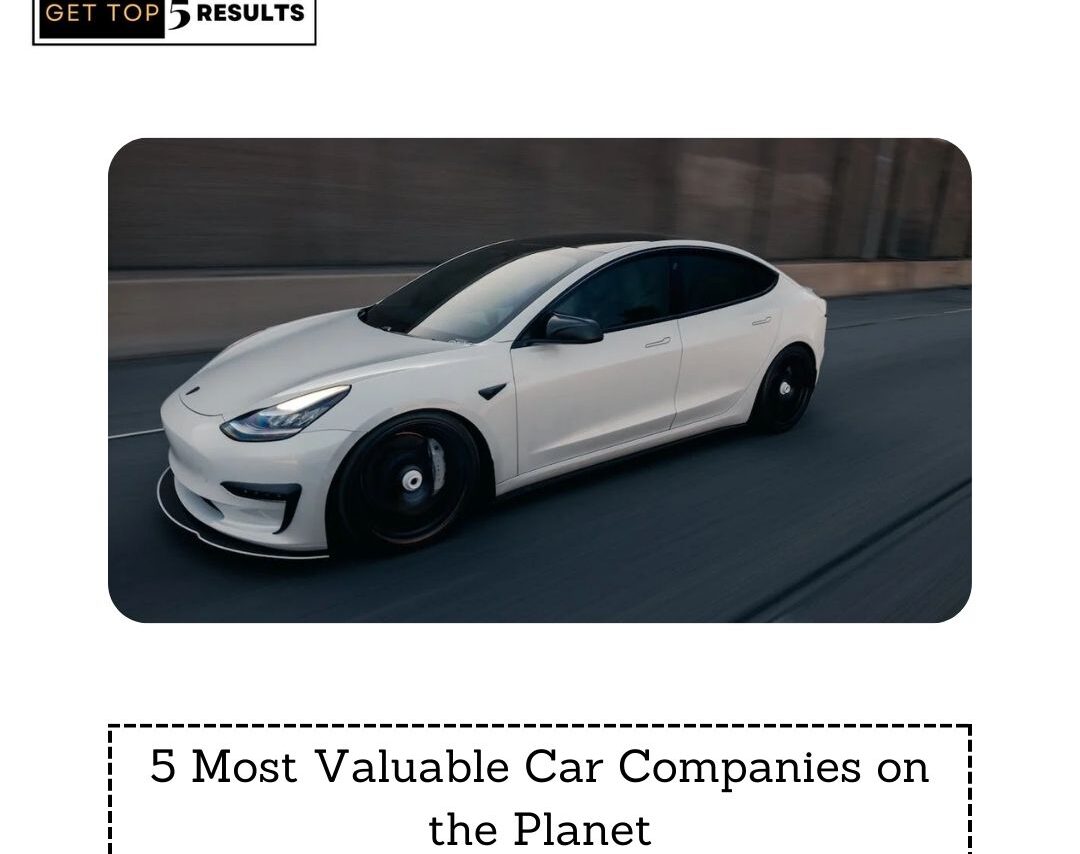For the majority of the last century, the auto industry has been a safe and stable investment opportunity. Most car companies provided consistent growth, and any investor was almost certain to see a significant return. However, this changed when Tesla (and other innovative companies) came onto the scene. In 2010, Tesla’s share price was $3.84, while Ford’s was $11.64. Fast-forward to today, and Tesla’s share price is $626.16, while Ford’s is $12.42 (all share prices correct at the time of writing). This kind of volatile market has not been seen since Henry Ford started mass-producing his Model T.
1. Tesla ($600 Billion – $1 Trillion+)
Tesla has had a tremendous impact on the automotive industry despite only being founded in 2003 and releasing its first mass-produced car in 2012. Tesla’s stock price is in a constant state of massive growth and record-breaking free-fall, seemingly occurring on a monthly basis – or whenever CEO Elon Musk says or does something questionable. This popularity has made Tesla the most profitable auto company in the world, with a market value of over $1 trillion – although it does fluctuate immensely. This makes Tesla more valuable than the next seven automotive companies combined! It’s an amazing accomplishment for a company that is less than 20 years old.
2. Toyota ($300 Billion)
Toyota has been a renowned company since the 1920s when they first manufactured looms for the textile industry. In 1936, they designed their first passenger car, and the rest is history. Toyota has become one of the biggest conglomerates in the world, owning or partially owning multiple companies in different sectors. Usually, Toyota and VW are competing for the second-place position. After the 2011 Japan earthquake and tsunami, VW achieved this, but Toyota quickly got back on track and is currently worth around $300 billion. Moreover, Toyota produces 10 million vehicles annually – approximately 4 million more than any other manufacturer.
3. Volkswagen ($100 Billion)
VW is the largest auto manufacturer in Europe and the third largest in the world. The VW Group owns a great many other car manufacturers – from more commonplace automakers such as SEAT and Skoda to premium ones like Audi and Porsche and finally high-end carmakers like Bentley and Lamborghini. This all adds up to a combined market value of close to $100 billion. VW is one of the most prosperous companies on the planet and, thanks to their investment in electric vehicles, their growth has continued to soar – especially within their various subsidiaries. VW and all the companies they own produce around 5 million vehicles per year, although, like most automakers, this number took a massive hit in 2020.
4. BYD ($95 Billion)
BYD is one of the largest manufacturing companies in China, with two divisions: BYD Automotive and BYD Electronic, which produces batteries for the Automotive division. BYD produces vehicles mostly for the Eastern hemisphere and the Middle East, and some of its models resemble Toyotas and BMWs. BYD produced nearly 1 million vehicles in 2021, but the majority of its revenue comes from the battery production side of the company. BYD is a major developer of electric buses and supplies various Western countries with them for use in major cities. BYD has also been accused of copying automotive designs – but all charges were dropped by Chinese courts. As a final point, it’s interesting to note that BYD is an abbreviation for ‘Build Your Dreams’.
5. Daimler ($75 Billion)
Daimler, which has recently been renamed to the Mercedes-Benz Group AG, was established in 1926 through a merger of Daimler Motoren Gesellschaft and Benz & Cie. The company continued as Daimler-Benz until 1998 when it bought Chrysler and became Daimler-Chrysler. In 2007, Chrysler left the company after being bought by Fiat, and Daimler became Daimler AG. Daimler is currently the fifth-largest automaker and has a market value of about $75 billion. Like VW, Daimler has multiple subsidiaries and alliances – including Smart, SsangYong Motors, and the Renault-Nissan-Mitsubishi conglomerate.












